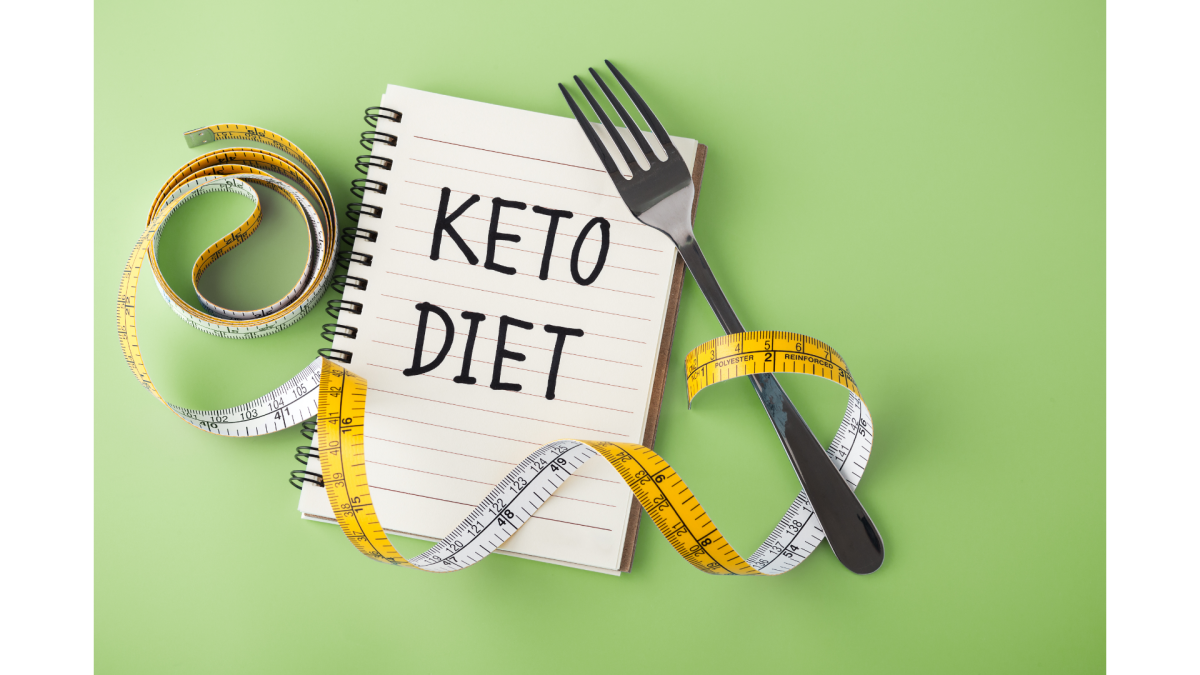Keto Diet Constipation: Causes, Remedies, and Expert Tips for a Smooth Journey
- Dietary Advice (non Low FODMAP)
Keto diet constipation may occur due to a number of different reasons. This can include a reduced fiber intake that comes with reducing carbohydrate intake or an overall reduction of food intake.
The keto diet is a low-carbohydrate, high-fat diet. Many people have adopted it as an approach to support weight loss.
The theory behind this approach is that the keto diet alters the body’s metabolism from relying primarily on carbohydrates for energy to using fats as its main fuel source. This puts the body into ketosis.
This article will discuss the mechanisms behind these causes.
We will also share some tips on how to manage keto diet constipation using fiber modification, tips on staying adequately hydrated and more.

Low fiber intake as a cause of keto diet constipation
The keto diet may cause constipation due to its very low carbohydrate allowance.
Carbohydrates are the primary source of fiber in the diet; therefore, when these are restricted, it becomes tough to meet the recommended 30g of fiber per day (1).
Fiber is essential in providing bulk or volume to the stool, stimulating gut motility. Soluble fiber also helps draw water into the stool, which softens it.
Overall reduction in food intake as cause of keto diet constipation
As the keto diet restricts a macronutrient that is a common component of most people’s regular diet, there is a risk of overall calorie restriction.
Therefore, although the keto diet is not calorie restricted, it may reduce calorie intake.
One study found that people with constipation are likely to have a lower daily calorie intake (3).
Eating less food means there is less waste for our bowels to excrete. The movement of waste along the bowel will also slow down. Therefore, if the keto diet reduces your overall food and calorie intake, it can increase your risk of constipation.
How can I manage keto diet constipation?
If you are constipated from being on the keto diet, here are several strategies you can try to prevent or alleviate constipation:
Eat more fiber
Although the keto diet is low in carbohydrates, there are still sources of fiber you can include. Opt for low-carb, high-fiber foods such as:
- Leafy greens (such as spinach, kale)
- Broccoli
- Cauliflower
- Avocados
- Chia seeds
- Flaxseeds
- Almonds
You can also try a fiber supplement to help you meet your 30g per day target.
We discuss soluble fiber supplements in more detail in our post ‘Best Soluble Fiber Supplement – According to a Dietitian’.
Stay hydrated
Sufficient water intake is crucial for maintaining regular bowel movements, as water is required to soften the stool and help move it along the gut.
Ensure you are drinking an adequate amount of fluid throughout the day. Most people should be drinking approximately 2-3L per day.
Water, squash, tea, coffee and other sugar-free drinks contribute to fluid intake.
Remember to drink more in hotter weather, as your fluid requirements increase due to sweating.

Adequately prepare for the keto diet
Give yourself time to prepare your weekly food shops and plan your meal. This is to allow you to carefully plan your meals and snacks, ensuring you choose higher-fiber foods where possible.
Do regular physical activity
Regular exercise can help stimulate the gut muscles and aid food movement along the bowel. Exercise, particularly aerobic exercises, can improve constipation (2).
Physical activity can also help improve mood and well-being and positively influence the gut microbiome (3).
This targets and improves the bidirectional communication between the gut and the brain, helping to improve gut symptoms such as constipation.
It is recommended that the general population in the UK exercise for approximately 150 minutes per week (4). Try a brisk walk, jogging or running, yoga, swimming or cycling.
Consider magnesium supplementation
Magnesium can help soften the stool and promote bowel regularity.
Talk to your healthcare provider about magnesium citrate supplements. Magnesium citrate is poorly absorbed and, therefore, can be used as a laxative.
Magnesium citrate supplements are discussed in more detail here: Will Magnesium Supplements Help Constipation?
If you are unable to manage your constipation with the above strategies, then discuss starting a laxative with your GP or pharmacist.
You can read more about the management of constipation in our post What is Constipation and How Can I Manage It? in our post here.
Are there any other risks of the keto diet?
The ketogenic diet is a drastic change if you follow a well-balanced diet. Therefore, it is no surprise that constipation is not the only risk of the ketogenic diet.
The following risks should be considered before starting the ketogenic diet:
- Restriction of a variety of foods can result in micronutrient deficiencies such as folate, thiamine and magnesium, which are commonly found in wholegrains and legumes.
- Some people, particularly those with IBS, may get bloating and diarrhea due to the keto diet’s high fat intake. Fat can slow down the movement of gas along the bowel, resulting in bloating, and increase colonic motility, which can cause diarrhea.
- The keto diet removes many prebiotics from the diet, which negatively affects the gut microbiota. You can read more in our post “What are Prebiotics and Should I Be Taking Them?”.
- There is a risk of increasing your intake of saturated fat if you do not choose foods that contain mono and polyunsaturated fats. This can increase your ‘bad’ LDL cholesterol and risk of cardiovascular disease.
Summary
The keto diet is a very low-carbohydrate and high fat diet.
The keto diet may cause constipation due to a reduced fiber intake, alterations to the gut microbiota and the increased risk of dehydration.
If you suffer from constipation or are worried about becoming constipated, then we would advise not to try the keto diet.
If you are on the keto diet and want to prevent or manage your constipation, increase your intake of high fiber and low-carbohydrate foods. It is also important to stay hydrated and move regularly.
You may want to discuss starting a magnesium supplement or laxative with your healthcare providers.